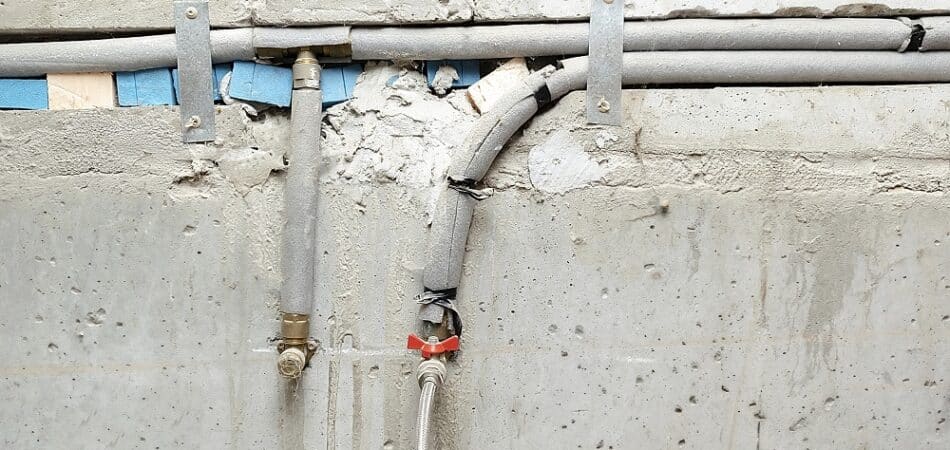Emergency Plumbing in Tacoma & Pierce County 24/7 Live Answer Free Second Opinion Quality Plumbing Services
Emergency Plumbing in Tacoma & Pierce County 24/7 Live Answer Free Second Opinion Quality Plumbing Services
Emergency Plumbing in Tacoma & Pierce County 24/7 Live Answer Free Second Opinion Quality Plumbing Services
Emergency Plumbing in Tacoma & Pierce County 24/7 Live Answer Free Second Opinion Quality Plumbing Services
Text Us: 253-231-7015
Call Us: 253-231-7015

Exposed pipes in your home require protection year-round. Proper insulation is important to prevent pipes from freezing in the winter and to reduce heat loss in the summer, which helps save on costly repairs and energy costs.
Uninsulated pipes are more vulnerable to freezing, leading to burst pipes, and they also contribute to energy loss, increasing your utility bills. By insulating your pipes, you maintain steady temperatures, prevent condensation, and extend the life of your plumbing system.
At Spartan Plumbing Inc., we specialize in keeping your plumbing safe and efficient. Contact us today for expert assistance with your pipe insulation needs.
Pipe insulation is essential in every season. It provides numerous benefits, including protection from freezing, condensation control, and energy savings.
Here’s why insulation is necessary:

When water inside pipes freezes, it expands, which can cause the pipe to crack or burst. Insulating your exposed pipes helps keep them warm enough to prevent freezing, even during extreme cold weather.
Heat loss from hot water pipes is a common issue. Insulating hot water pipes helps retain heat, ensuring that hot water stays at the right temperature and cold water remains cool. This boosts the overall energy efficiency of your home and lowers utility bills.
When water flows through insulated pipes, it reaches your faucets or appliances faster, which means less waiting time and more efficiency.
In humid environments, cold water pipes can develop condensation, causing moisture to collect on the pipe surface. This can lead to water damage to walls, ceilings, and floors and contribute to mold growth.
By insulating your cold water pipes, you prevent condensation, keeping your home dry and safe from mold.
Frequent temperature changes and exposure to moisture cause wear and tear on plumbing. Insulation helps reduce this stress by stabilizing temperatures, which ultimately extends the lifespan of your pipes. It reduces the likelihood of cracks, leaks, and corrosion, keeping your plumbing system in good condition for years to come.
Selecting the right insulation material is essential to maximizing the protection and efficiency of your plumbing system.
Here are some common materials used for pipe insulation:
 Foam: Lightweight and easy to install, foam insulation is ideal for interior pipes and provides good protection against freezing temperatures.
Foam: Lightweight and easy to install, foam insulation is ideal for interior pipes and provides good protection against freezing temperatures.The right insulation material depends on your location and the temperatures your pipes will be exposed to. In cold climates, foam or polyethylene foam is typically used to prevent freezing, while in warmer climates, rubber or fiberglass insulation helps reduce energy loss by keeping hot water pipes from losing heat.
In areas that experience both extreme cold and heat, aerogel insulation, known for its high R-value, offers superior year-round protection.
For homeowners who prioritize eco-friendly solutions, there are recycled foam or plant-based insulation materials available. These materials reduce waste and are biodegradable. Rubber and fiberglass also have a long lifespan, which helps minimize the need for replacements and further contributes to sustainability.
Certain areas of your home are more susceptible to temperature fluctuations, making them vulnerable to damage.
These are the spots where you should focus your insulation efforts:
Proper installation of insulation is key to its effectiveness. Even small gaps in insulation can reduce its ability to protect your pipes.
Here’s how to install insulation properly:
Insulating your pipes is one of the most effective and affordable ways to protect your home from water damage, reduce your energy costs, and extend the life of your plumbing system. Proper insulation keeps water flowing smoothly during the winter, prevents freezing, and eliminates costly repairs.
At Spartan Plumbing Inc., we are your trusted plumbers, dedicated to keeping your plumbing system in top condition year-round. If you’re unsure where your pipes are vulnerable or need expert help with insulation installation, call us today.
Let our team of professionals help keep your plumbing system protected so you can enjoy reliable water year-round.